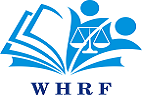NICARAGUA
Nicaragua’s human rights crisis continued throughout 2020, as did the authorities’ strategy of repressing dissent. The government’s response to the COVID-19 pandemic ignored the health recommendations of international organizations. Arbitrary arrests and detentions of political activists continued and new threatening laws against dissent were adopted. Hundreds of migrant workers and asylum-seekers from Nicaragua seeking to return to the country in the context of the pandemic faced obstacles imposed by the government. Impunity persisted for those suspected of criminal responsibility for violence against Indigenous Peoples.
Right to health
Despite recommendations of international organizations in the context of the COVID-19 pandemic, the Nicaraguan authorities promoted mass gatherings where social distancing was not possible. In April, the Pan American Health Organization (PAHO) expressed concern about the Nicaraguan government’s response to COVID-19, which did not include promoting social distancing measures, but rather called for mass gatherings. PAHO also described the prevention and control processes implemented by the authorities as inadequate.1 In May, PAHO added that, despite repeated requests and the government’s response that it would allow PAHO to visit health facilities and provide detailed information, the authorities took no action.
Local groups highlighted the lack of information that the government provided about the pandemic and public policies for prevention, diagnosis and containment. The OHCHR also noted with concern the lack of state transparency regarding official information about the response to COVID-19.
By August, at least 31 health workers had been dismissed from their jobs in the public sector, according to the Citizen Observatory COVID-19 Nicaragua and local lawyers. These dismissals occurred after workers expressed concerns about their working conditions, the lack of personal protective equipment (PPE), or made public their concerns about the state response to the pandemic.2
In the context of COVID-19, the situation of political activists and those perceived as government opponents who remained detained in Nicaragua’s precarious, overcrowded and unsanitary prison system was especially concerning. Moreover, reports of the poor supply of drinking water and lack of adequate medical care and medicine within the prison system continued.3
Local organizations and relatives of individuals whose detention was politically motivated reported that some of these detainees suffered from serious pre-existing health problems that render them especially vulnerable to COVID-19. In addition, they reported that none of them was tested for COVID-19 or receiving proper health care.4 In May, the OHCHR expressed concern over reports that approximately 40 of these detainees had presented symptoms consistent with COVID-19 and/or suffered from chronic health conditions.
Freedoms of association, assembly and expression
The authorities continued targeting journalists, human rights defenders and local NGOs. By the end of 2020, the legal registration of nine human rights organizations, which had been cancelled by the National Assembly in December 2018, had not been restored and their assets remained confiscated. In June, the National Assembly cancelled the legal registration of an additional NGO that worked in the municipality of Camoapa. Later, in August, Fundación del Río reported that six of its properties, including reforestation areas and nature reserves, had been arbitrarily confiscated.
Throughout the year, reports of illegitimate restrictions on the right of peaceful assembly continued. The OHCHR and the Inter-American Commission on Human Rights (IACHR) received reports of different demonstrations and public events that were repressed or restricted by the government or pro-government groups.
Between March and mid-July, the Observatory of Aggressions on the Independent Press of Nicaragua reported 351 aggressions, including the criminalization of journalists, arbitrary detentions and the harassment of media workers and their families. Additionally, between mid-July and mid-December the Observatory received reports of 943 aggressions.
In October, the National Assembly approved the Law for the Regulation of Foreign Agents and the Special Law on Cyber-crimes. The following month, the National Assembly approved, on first reading, a reform of the Constitution that would allow lifetime imprisonment. In the current context, there was a well-founded fear that these laws would be used to target people who speak out against repressive policies and call for respect for human rights.
In December, the Law for the Defence of the Rights of the People to Independence, Sovereignty and Self-Determination for Peace was approved by the Assembly. The same month, the General Secretariat of the Organization of American States stated that this law seeks to restrict political rights and jeopardize fundamental rights enshrined in international instruments.
Arbitrary detention
Hundreds of people have been incarcerated since April 2018 for the free exercise of their rights. By December, local organizations reported that more than 100 of them remained in prison. Arbitrary arrests and detentions of political activists were reported even during the pandemic.
Additionally, political activists released from prison reported harassment and surveillance by the authorities and pro-government groups. As of early December, at least 31 people held for political reasons had been re-arrested after being released, according to local organizations.
Indigenous Peoples’ rights
Local NGOs and communities continued to report the presence of non-Indigenous settlers on their lands, as well as threats and attacks by settlers. Despite the fact that some of the attacks resulted in deaths of Indigenous people, according to local organizations and media reports, no special protection measures were put in place by the government to establish responsibility for the killings or to prevent future attacks.
